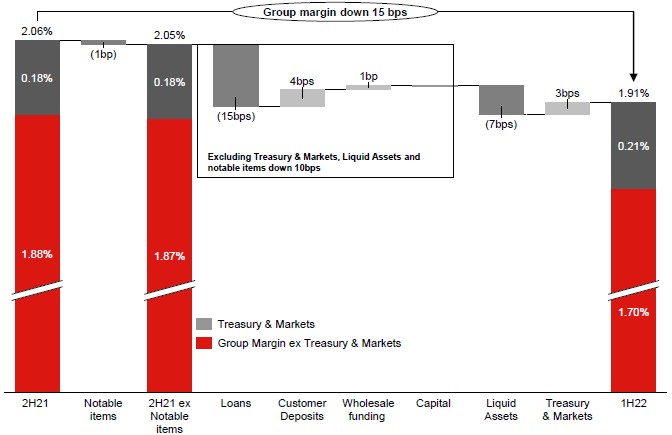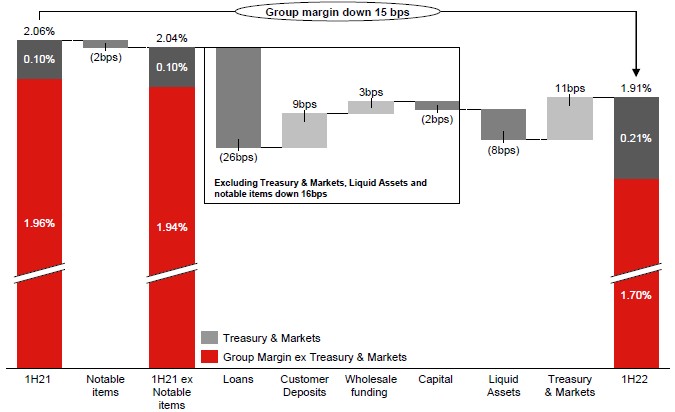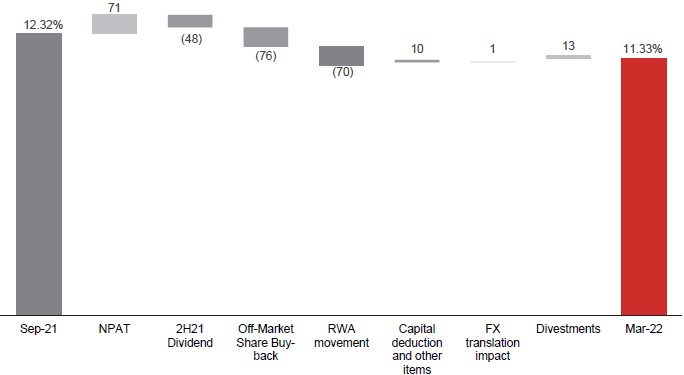requirements, enforcement or supervisory action by regulators, adverse findings from regulatory reviews, failure or perceived failure to adequately respond to community, environmental, social and ethical issues, and inadequate record keeping, which may prevent Westpac from demonstrating that, or determining if, a past decision was appropriate at the time it was made.
Westpac also recognises the potential reputational consequences (together with other potential commercial and operational consequences) of failing to appropriately identify, assess and manage environmental, social and governance related risks such as climate change risk, human rights risk including customer vulnerability, modern slavery and child safety risk, or respond effectively to evolving standards and stakeholder expectations.
Our reputation could also be adversely affected by the actions of customers, suppliers, joint-venture partners, strategic partners, or other counterparties.
Failure, or perceived failure, to address issues that could or do give rise to reputational risk, has created, and could in the future create additional legal risk, subject us to regulatory investigations, regulatory enforcement actions, fines and penalties or litigation or other actions brought by third parties (including class actions), and the requirement to remediate and compensate customers, including prospective customers, investors and the market. This could adversely affect our business, prospects, financial performance or financial condition.
We have and could suffer losses due to litigation
From time to time, the Group is involved in legal proceedings (including class actions), regulatory actions or arbitration. Such litigation has been, and could in the future be, commenced by a range of plaintiffs, such as customers, shareholders, employees, suppliers, counterparties and regulators.
In recent years, there has been an increase in class action proceedings, many of which have resulted in significant monetary settlements. The risk of class actions has been heightened by a number of factors, including regulatory enforcement actions (such as the civil penalty proceedings brought by AUSTRAC), an increase in the number of regulatory investigations and inquiries (such as the Royal Commission), a greater willingness on the part of regulators to commence court proceedings, more intense media scrutiny and the growth of third-party litigation funding and other funding arrangements. Class actions commenced against a competitor could also lead to similar proceedings against Westpac.
Litigation (including class actions) may, either individually or in aggregate, adversely affect the Group’s business, operations, prospects, reputation or financial condition. This risk is heightened by increases in the severity of penalties for certain breaches of the law. Such matters are subject to many uncertainties and the outcome may not be predicted accurately. Furthermore, the Group’s ability to respond to and defend litigation may be adversely affected by inadequate record keeping.
Depending on the outcome of any litigation, the Group has been, and may in the future be, required to comply with broad court orders, including compliance orders, enforcement orders or otherwise pay significant damages, fines, penalties or legal costs.
There is a risk that the actual penalty or damages paid following a settlement or determination by a Court for any legal proceedings may be materially higher or lower than any relevant provision (where applicable) or that any contingent liability may be larger than anticipated. There is also a risk that additional litigation or contingent liabilities arise, all of which could adversely affect our business, prospects, reputation, financial performance or financial condition.
There is additional information on certain legal proceedings that may affect the Group in ‘Significant developments’ in the Directors’ report and in Note 14 to the financial statements in this Results Announcement.
We could suffer losses due to technology failures
Maintaining the reliability, integrity and security of our information and technology is crucial to our business. While the Group has a number of processes in place to preserve and monitor the availability and recovery of our systems, there is a risk that our information and technology systems might fail to operate properly or result in outages, including from events wholly or partially beyond our control.
If we incur a technology failure, we may fail to meet a compliance obligation (such as retaining records and data for a certain period), or our customers may be adversely affected, including through the inability for them to access our products and services, privacy breaches or the loss of personal data. This could result in reputational damage, remediation costs and a regulator commencing an investigation and/or taking action against us. The use of legacy systems, as well as the work underway to uplift our technological capabilities, may heighten the risk of a technology failure.
We need to regularly renew and enhance our technology to deliver new products and services, comply with regulatory obligations and meet our customers’ and regulators’ expectations. Consequently, we are constantly managing new technology projects. Failure to effectively implement these projects could result in cost overruns, reduced productivity, outages, operational instability, compliance failures, reputational damage and/or the loss of market share. This could place us at a competitive disadvantage and adversely affect our business, prospects, financial performance or financial condition.








